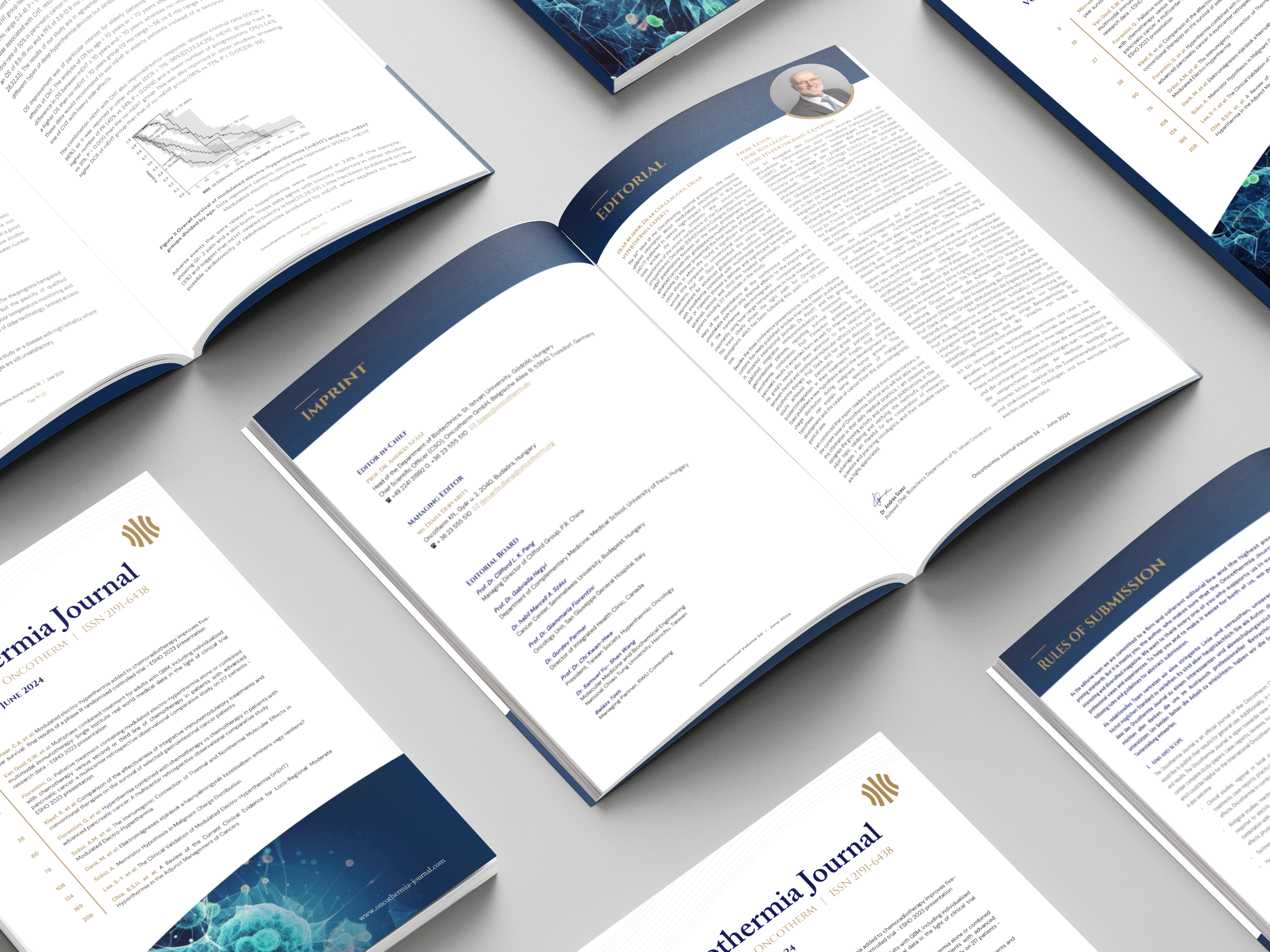In dem Buch „Recent Developments in Engineering Research Vol. 3” (Dr. Yong X. Gan, Professor am Department of Mechanical Engineering der California State Polytechnic University, Pomona, USA) wurde ein Artikel zum Thema Oncothermie veröffentlicht.
Data Mining and Evaluation of Single Arm Clinical Studie
Autoren: O Szasz, AM Szasz, GP Szigeti, A Szasz
Abstract
Lifetime analyses frequently apply a parametric functional description from measured data of the Kaplan-Meier non-parametric estimate (KM) of the survival probability. The cumulative Weibull distribution function (WF) is the primary choice to parametrize the KM. but some others (e.g. Gompertz, logistic functions) are also widely applied. We show that the cumulative two-parametric Weibull function meets all requirements. The Weibull function is the consequence of the general selforganizing behavior of the survival, and consequently shows self-similar death-rate as a function of the time. The ontogenic universality as well as the universality of tumor-growth fits to WF. WF parametrization needs two independent parameters, which could be obtained from the median and mean values of KM estimate, which makes an easy parametric approximation of the KM plot. The entropy of the distribution and the other entropy descriptions are supporting the parametrization validity well. The goal is to find the most appropriate mining of the inherent information in KM-plots. We show clinical examples of oncological hyperthermia treatment, evaluated by single-arm study. The method which we chosen is the modulated electrohyperthermia (mEHT, oncothermia ®) which is applied in the final stages of the cancer, and no conventional treatment as control is available in many studies. We show the two-parameter WF fits to the non-parametric KM survival curve in a real study of 1180 cancer patients offering satisfactory description of the clinical results. Two of the 3 characteristic parameters of the KM plot (namely the points of median, mean or inflection) are enough to reconstruct the parametric fit, which gives support of the comparison of survival curves of different patient’s groups. Objective in this chapter is to find a parametric description of overall survival, which fits the selforganized processes and is able to show the inherent information of survival measurements of cancer patients in advanced cases, when the curative conventional and evidence-based proven therapies fail.
Keywords: Self-organizing; self-similarity; Avrami-function; Weibull-distribution; survival-time; allometry; entropy; bioscaling, mEHT.






